We all have those moments, where we’re stretched thin for time and patience. I remember one particular night, I took the wrong off ramp and it turned into the biggest fiasco to get back onto the highway. Frustration, on top of traffic, I was wound tight. I wish that I could say, I laughed it off, but no; it was more of a masochistic tirade, “How could you be so stupid, idiot, absurd, moron.” One self-deprecating word after another, the litany was relentless.
I didn’t even recognize that I was saying this to myself. Only when I was back on the highway, did I acknowledge my outburst. Apparently, my automatic reaction is to verbally abuse myself. Is it just me or is there a serious disconnect going on here? I would never say this to a friend, much less a stranger and yet it’s my programed reflex. Damn, this isn’t good.
Here’s my positive, the silver lining to this self-inflicted disparagement; whatever has been programed can be reprogramed. I have OCD, after all. The thing is any of us have the power to rewrite our thoughts. It’s not complicated. The only tool needed is to recognize that this is not only unnecessary; it’s cruel.
Once we admit that such rhetoric is self-destructive, we can narrate our response. We own it now. It doesn’t own us. With all this said, I have done something about it.
Starting with my New Years Resolution, I have committed to showing myself the compassion that I show to the world. Every time, I hear myself use words like stupid, idiot, etc., I immediately cease this internal rebuke and instead, ask myself, “Would I say this to my father? A friend? A stranger?” When the answer is no as it always is, I remind myself that it’s ok to make mistakes. I take a moment, bow my head and forgive myself. At first, this formality seems hokey, but the ceremony has a greater imprint on my programming by bringing presence to an unconscious habit.
Even if I completely screw up, which I do all the time, the mere act of acknowledging that this rant is unnecessary and uncalled for has heightened my awareness. I recognize that the demands I make on myself are merciless. I never give myself a break. Maybe I’m not as proactive as I’d like to be, but simply ending this negative diatribe is a means of giving myself a break.
Let’s be real, it took decades for me to get this destructive. I don’t expect over night success. I’m honest about my expectations so that I don’t set myself for failure. At the same time, it lets me appreciate what progress I have made, alleviates the pressure of being perfect. I remain unconvinced that I need to conquer because success is in the art of recognizing these behaviors and having the guts to change them. I accept that; I'll always be a work in progress. This is a form of self-compassion.
Acknowledging that I deserve kindness and understanding has offered me an unexpected peace, which is why I’m talking about New Years resolutions in May. I can say unequivocally that showing myself more compassion has helped me show more compassion to others. As I’ve begun to recognize this negative automated message in myself, I instantly recognize it in others. I reply with the same response that I say to myself, “I think you’re being too hard on yourself.” Not a judgment, just a reminder.
It’s been amazing to see my friends, family, and even strangers look surprised and suddenly relieved. I gently say to them, “it’s o.k. to make mistakes” and invariably ask, “Would you say this to a friend?” We simultaneously shake our heads. At this moment, we directly diffuse the ticking time bomb of self-abuse.
Five months into my resolution, I frequently hear my friends and family remind others that they are being too hard on themselves. They have become self-aware and in turn, extend those helpful reminders to others. It’s this incredibly infectious chain of compassion. The idea being that, if we remind one another to be kind to ourselves, it’s quite possible that we could change the physiognomy of the world. Imagine that!


